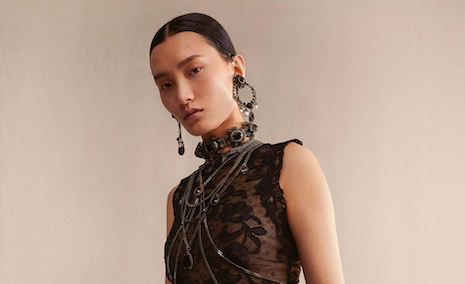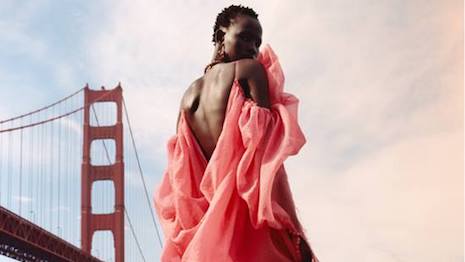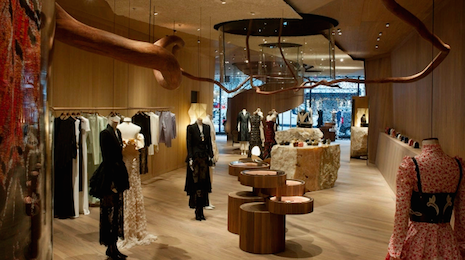 Alexander McQueen spring/summer 2019 campaign. Image credit: Alexander McQeeun
Alexander McQueen spring/summer 2019 campaign. Image credit: Alexander McQeeun
MADRID – With the potential to become one of Kering’s billion-dollar labels, British apparel and accessories label Alexander McQueen is relying on its in-house talent to guide the relatively young brand.
The CEO of Alexander McQueen explained the importance of engaging with both new and longtime employees in a conversation with Jo Ellison, fashion editor and associate editor at Financial Times, at the FT Business of Luxury Summit on May 21. The dialogue also touched on how the brand is looking to reinvent itself.
“How do you make sure the growth and vision is meaningful, meaningful for customers, meaningful for the values of the house?,” said Emmanuel Gintzburger.
“You can jump into trends and go away from values, you can run campaigns for millions of likes,” he said. “You can run the supply chain without taking care of the impact on the environment, you can treat your team as disposable resources.”
Company culture
Alexander McQueen has faced several challenges since its inception in 1992, including the sudden death of its eponymous founder in 2010.
Today, Mr. Gintzburger singles out longtime employees as gatekeepers of the brand, while younger employees help lead experimentation.
“When we talk about meaningful growth, we talk about people,” Mr. Gintzburger said. “We have amazing people, who have been here 20 years and newcomers.”
Alexander McQueen fall/winter 2018 campaign. Image credit: Alexander McQueen
In the past, Alexander McQueen has hired workers in their early twenties who have little knowledge or experience in the fashion industry. However, they play a role in innovation – for instance, by searching for ways to develop new internal processes.
The label has also embraced data as a means of connecting the dots across different parts of its business.
Alexander McQueen is also looking into expanding into categories beyond ready-to-wear, handbags and accessories to further drive its revenues.
Alexander McQueen opened a new flagship location on Old Bond Street, London. Image credit: Alexander McQueen
The brand's CEO also explained the importance of putting its values into action. Since its apparel is focused on what Mr. Gintzburger described as “multifaceted female strength,” he also reiterated his commitment to closing the gender pay gap at Alexander McQueen.
“It requires a commitment to creative freedom and infrastructure to drive vision into growth,” Mr. Gintzburger said.
Luxury engagement
As luxury becomes more about experience and accessibility, these shifts are also informing how Alexander McQueen approaches brand engagement and retail.
In recent years, “Alexander McQueen: Savage Beauty,” a traveling exhibit featuring its late eponymous designer’s work, brought the label’s legacy to consumers around the world. The retrospective was hosted at London’s Victoria and Albert Museum in spring 2015 (see story).
The brand is also reinvesting in physical retail, as more consumers seek unique shopping experiences.
Alexander McQueen’s new London flagship is the start of a plan to double its bricks-and-mortar locations, which will eventually total 128 stores.
A floor above the showroom will be reserved for special events, which are be reserved special for fashion students, in a more inclusive space. The brand will start hosting exhibitions, talks and other interactive events this past January (see story).
“What we wanted to create is pure physical expression of the company and opening it up to the style world,” Mr. Gintzburger said.


